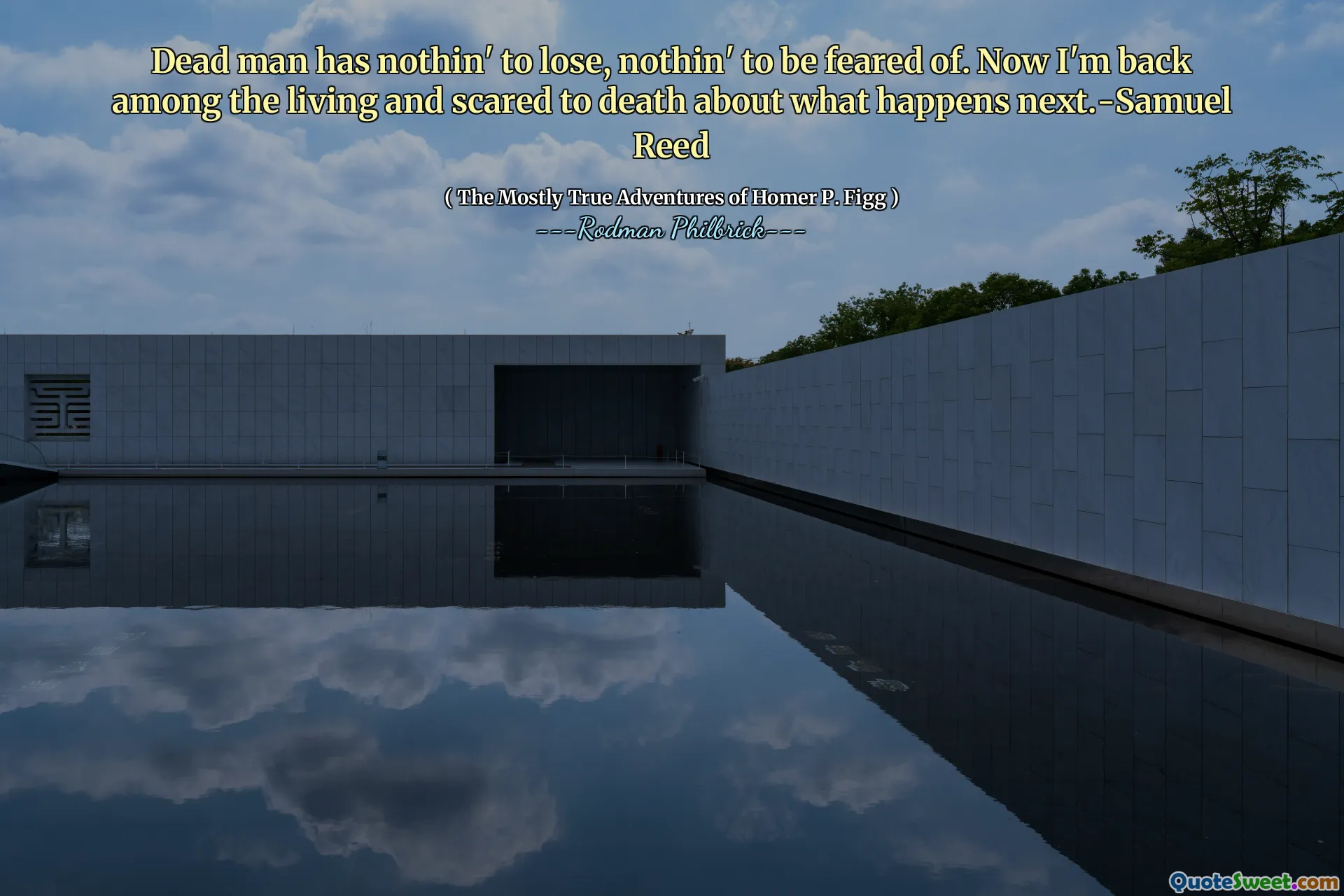
Dead man has nothin' to lose, nothin' to be feared of. Now I'm back among the living and scared to death about what happens next.-Samuel Reed
In "The Mostly True Adventures of Homer P. Figg" by Rodman Philbrick, the character Samuel Reed expresses a profound realization about life and death. He reflects on the freedom that comes with being dead, where one has nothing to lose and no fears to confront. This perspective highlights the stark contrast between the absence of worries in death and the anxieties that accompany being alive.
Upon returning to life, Reed feels overwhelmed by a sense of fear and uncertainty about the future. This transition from a seemingly liberating state of death back to the complexities of living creates a tension within him. His statement encapsulates the theme of grappling with one's fears and the existential questions that arise when faced with the unpredictable nature of life.











